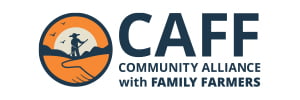All posts in After: Livestock

Guía Sobre Incendios Forestales y Inocuidad Alimentaria
INTRODUCCIÓN La Ley de Modernización de Inocuidad de los Alimentos fue promulgada en 2011 y comprende numerosas normas. Una de ellas es la Norma de Seguridad de los Productos Agrícolas […]

2019 Camp Fire Water Resources Monitoring and Research Symposium
The symposium brought together researchers who have been investigating the impacts of the Camp Fire and other urban fires in Northern California. Speakers covered a diversity of research conducted on […]

Wildfire Ash: Impacts on Forage Crops
A report from the University of California Agriculture and Natural Resources with findings from a study on the impacts of wildfire ash deposition on crops grazed or harvested for livestock […]

Episode 2: Wild Oat Hollow Penngrove, CA
In this episode, Sarah Keiser of Wild Oat Hollow in Penngrove, CA describes her entry into ranching and how her love of the land positioned her to become a leader […]

How to Establish an Ag/Livestock Pass Program from UC ANR
A detailed description of how to establish a county-based program that grants agriculturalists special access to their farms or ranches during disaster.

5 Key Wildfire Resilience Practices
It’s not always obvious that some of the ecological farming practices used frequently by farmers, also provide wildfire protection and recovery benefits. Check out the infographic below which was developed […]

Sisikyou Livestock Pass Program
The Siskiyou County University of California Cooperative Extension (“UCCE”) and the Siskiyou County Agricultural Department have established a program, through the issuance of a Livestock Access Pass, which may permit […]

To Graze or Not To Graze
Determining when to graze livestock after a fire can be a controversial and sometimes difficult decision. Much of the post-fire consideration depends upon site characteristics (percent slope, soil type), plants […]

When Wildfire Hits the Ranch: Lessons Learned
Just as quickly as the Thomas Fire swept through parts of our community, the questions started flooding my office: Should we prune our burned avocado trees? Can I graze my […]

Wildfires, Smoke & Livestock
Severe wildfires expose humans and animals to injuries both from burns and inhalation of unhealthy air containing smoke and particulates. These particulates can build up in the respiratory system, causing […]

Livestock Indemnity Program
The Livestock Indemnity Program (LIP) to provide benefits to eligible livestock owners or contract growers for livestock deaths in excess of normal mortality or reduced sale prices for owned livestock […]



